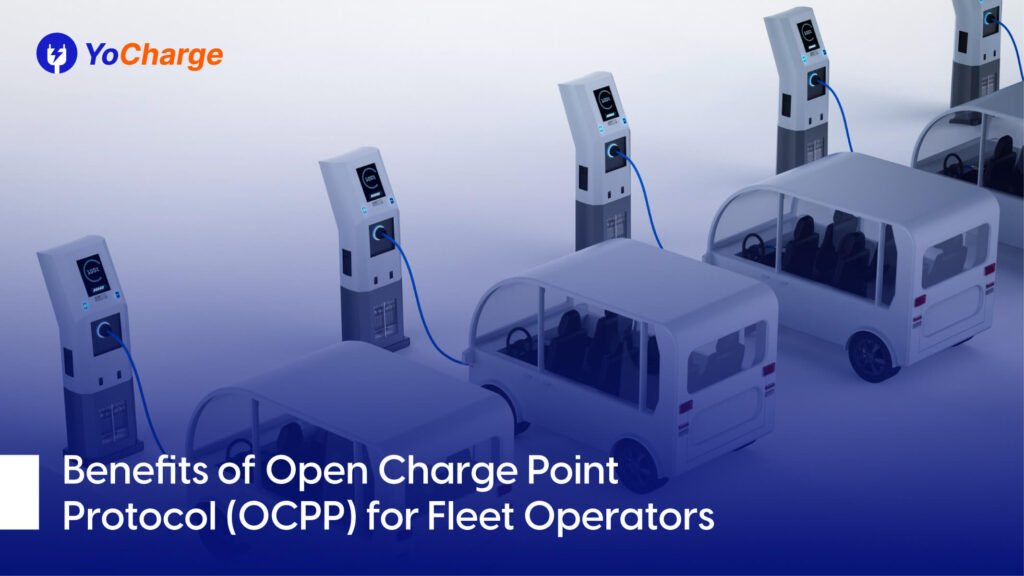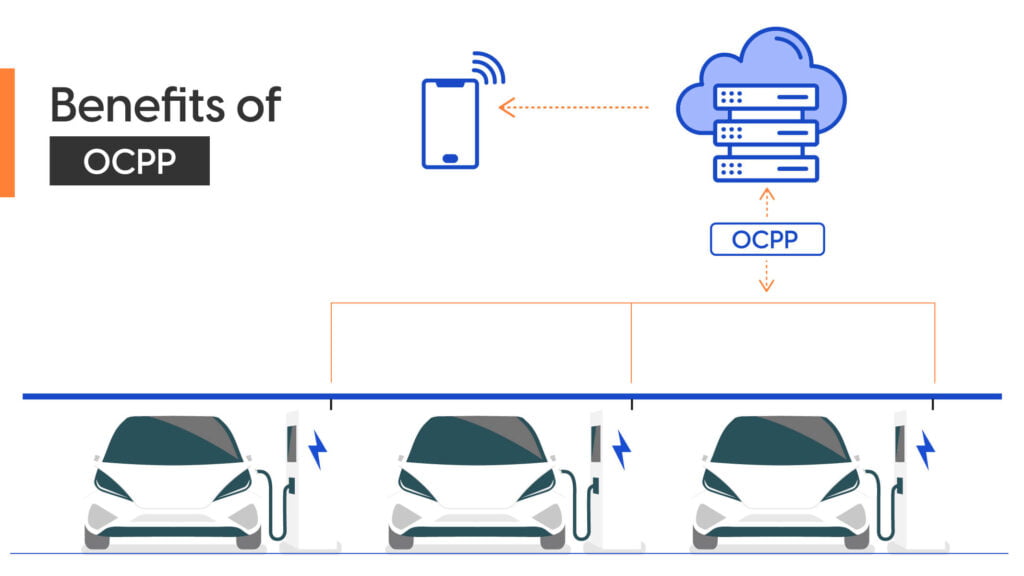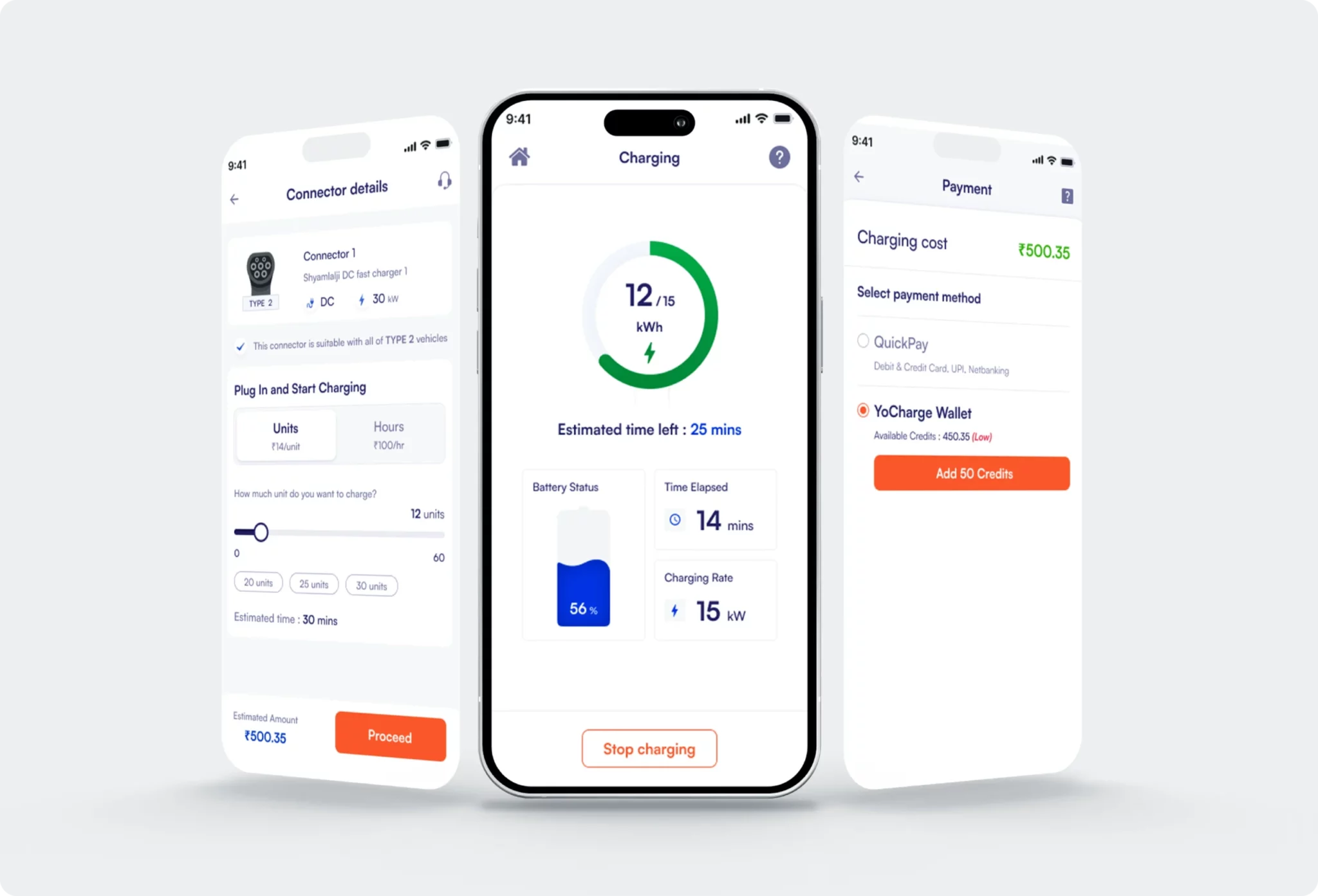
Electric vehicles (EVs) are fast becoming a popular mode of transportation, and the global electric vehicle market is expected to keep growing at a CAGR of over 22% from 2021 to 2028. As more businesses adopt EVs as part of their fleets, they face challenges managing these vehicles’ charging infrastructure.
The Open Charge Point Protocol (OCPP) is a widely adopted standard for communication between charging stations and back-office systems that can help fleet operators overcome these challenges. In this article, we will discuss the features and benefits of OCPP and how fleet operators can leverage this technology to manage their EV charging infrastructure more effectively.
Features of Open Charge Point Protocol

OCPP is an open-source protocol that provides a standard interface for communication between charging stations and back-office systems. The protocol defines messages enabling charging stations to report their status, receive commands from the back-office system, and exchange data with other systems. Some of the critical features of OCPP are:
Vendor-agnostic:
Any specific charging station manufacturer or back-office system is not tied to OCPP. This feature means that charging stations from different vendors can communicate with each other, and fleet operators can choose the charging station and back-office system that best meets their needs.
Scalable:
Many charging stations can be supported by OCPP and fleet operators can scale it up or down as per their requirements. This scalability is significant for fleet operators looking to expand their EV fleet over time.
Secure:
This protocol uses industry-standard security protocols to protect the communication between charging stations and back-office systems. This feature ensures that sensitive data, such as customer and transaction data, is kept secure.
Flexible:
Open Charge Point Protocol is customisable to meet the specific requirements of fleet operators. For example, fleet operators can configure the protocol to support different billing models, such as pay-per-use or subscription-based billing.

Benefits of OCPP (Open Charge Point Protocol)
Improved operational efficiency:
Open Charge Point Protocol enables fleet operators to monitor and manage their charging infrastructure remotely. This operation means that fleet operators can quickly identify and resolve issues, such as charging station downtime, which can impact the operational efficiency of their EV fleet. In addition, OCPP provides real-time data on the charging status of each vehicle, allowing fleet operators to optimise the charging schedule to minimise downtime and ensure that the electric vehicles receive charging when needed.
Reduced costs:
OCPP can help fleet operators reduce their operating costs by providing real-time data on the energy consumption of each vehicle. This enables fleet operators to accurately track each vehicle’s energy consumption and cost and allocate the cost to the appropriate department or customer.
In addition, OCPP provides data on the utilisation of each charging station, allowing fleet operators to optimise the placement of charging stations to minimise the installation and operating costs.
Improved customer experience:
OCPP provides fleet operators with the tools to provide a better customer experience to their EV customers. For example, OCPP enables fleet operators to provide real-time information on the availability and location of charging stations, which can help customers plan their trips more effectively. In addition, OCPP supports different billing models, allowing fleet operators to offer flexible billing options to their customers.
Integration with other systems:
OCPP is an open-source protocol that can be easily integrated with other charging management networks. This integration can provide fleet managers with a comprehensive view of their fleet operations, making it easier to identify areas for improvement.
Who will benefit from using OCPP (Open Charge Point Protocol)?
OCPP can benefit a variety of fleet industries, including corporate fleets, passenger transport services, and e-logistics fleets. By providing a standardised interface for managing and controlling EV charging infrastructure, OCPP can help reduce costs, increase efficiency, and better manage electric vehicle charging infrastructure.
Corporate fleets can benefit from OCPP by remotely monitoring and managing their EV charging infrastructure, reducing downtime and improving operational efficiency. Passenger transport services can ensure their electric vehicles are charged and ready to go when needed, ultimately leading to better profitability.
E-logistics fleets can benefit from OCPP by optimising their charging infrastructure to ensure their electric vehicles are fully charged when required, reducing downtime, and confirming delivery schedules.
Overall, OCPP provides numerous benefits for these industries, including real-time data on energy consumption and cost, allowing for more efficient fleet utilisation, cost allocation, and route planning. By leveraging OCPP, these industries can better manage their EV charging infrastructure, optimise their operations, reduce costs, and ultimately increase profitability.

YoCharge’s EV Fleet Management Software Services
YoCharge is a company that offers EV fleet management software services configured with OCPP. The company provides a comprehensive suite of services, including fleet optimisation, charging infrastructure, and energy management. YoCharge’s services are designed to help fleet operators reduce costs, improve operational efficiency, and improve the customer experience.
Fleet optimisation:
YoCharge’s fleet optimisation software is designed to help fleet operators optimise their EV fleets for maximum efficiency. The company uses advanced analytics to analyse fleet data and identify opportunities to reduce costs and improve performance. YoCharge’s fleet optimisation services include route optimisation, energy management, and vehicle maintenance.
Charging infrastructure management:
YoCharge’s charging infrastructure management services are designed to help fleet operators manage their charging infrastructure more effectively. The company uses Open Charge Point Protocol to remotely monitor and manage the charging stations, reducing downtime and improving operational efficiency. YoCharge’s charging infrastructure management services include installation, maintenance, and billing.
Energy management:
YoCharge’s energy management services are designed to help fleet operators reduce their energy costs and improve the sustainability of their operations. The company uses advanced analytics to optimise the energy consumption of each vehicle and charging station, reducing energy waste and minimising the fleet’s carbon footprint.
Conclusion
OCPP is a powerful tool for managing EV charging infrastructure and can benefit fleet operators significantly. Using Open Charge Point Protocol, fleet operators can reduce costs, improve operational efficiency, and boost the customer experience. Corporate and e-logistics fleets are two segments that can benefit significantly from OCPP, as they operate in dynamic environments with constantly changing requirements.
Companies like YoCharge are leveraging OCPP to provide comprehensive EV fleet management services that help fleet operators optimise their fleets, manage their charging infrastructure, and reduce energy costs. As more businesses adopt EVs as part of their fleets, OCPP will become increasingly important in enabling these businesses to manage their EV charging infrastructure effectively.

Introducing YoCharge
Yocharge is the EV Charging Management Software Company. As a trusted partner of Charge Point Operators our goal is to simplify the launching, operation & growth of EV Charging Services Business. With help YoCharge you can launch your own branded EV Charging business in 7 days with custom mobile Applications.



